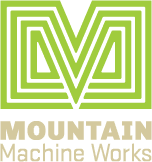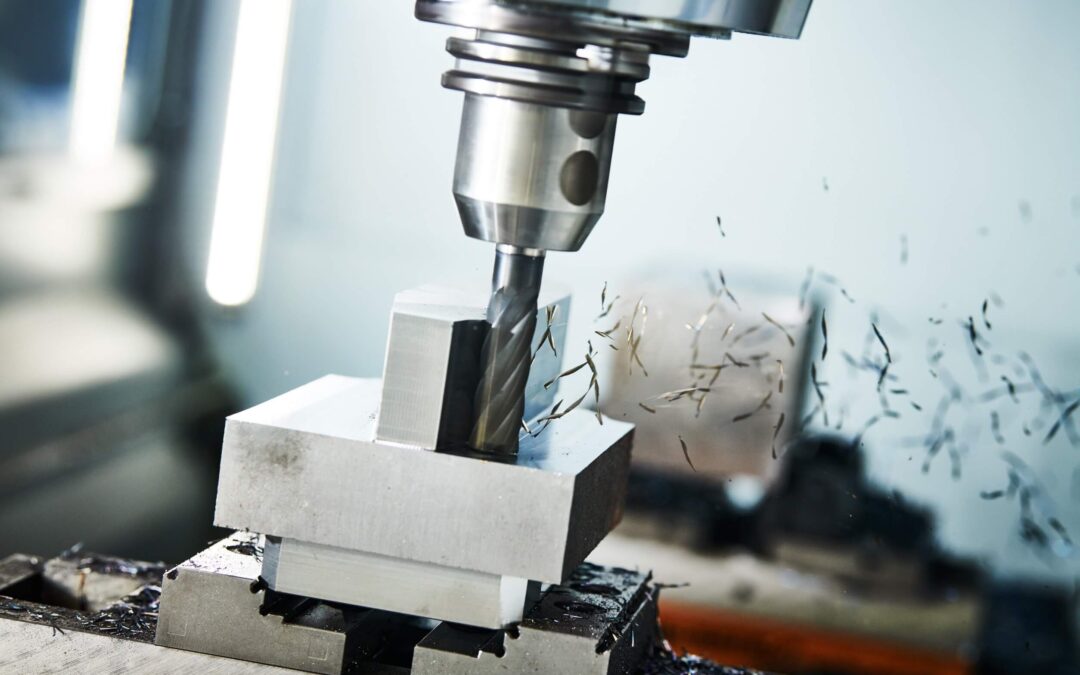Welcome to Mountain Machine Works! In this comprehensive guide, we will delve into the world of CNC machining costs, exploring the various factors that influence pricing and providing insights to help you make informed decisions for your projects. Whether you’re a seasoned professional or new to CNC machining, this guide will equip you with valuable knowledge on cost considerations, material selection, and ways to optimize expenses. Let’s begin our journey into understanding CNC machining costs.
What Is CNC Milling and Its Uses?
CNC milling is a highly versatile manufacturing process that uses computer numerical control (CNC) machines to remove material from a workpiece. The process involves the use of rotating cutting tools to shape and create precise, complex parts from a wide range of materials. CNC milling finds applications in numerous industries, including aerospace, automotive, electronics, medical, and more. From intricate prototypes to large-scale production runs, CNC milling offers accuracy, repeatability, and efficiency.
Common Materials Used for CNC Milling and Their Cost
The choice of material for your CNC milling project plays a significant role in determining its cost. Here are some commonly used materials and their approximate costs:
- Aluminum: Aluminum is a popular choice due to its light weight, excellent machinability, and affordability. It is widely used in industries such as automotive, aerospace, and electronics. The cost of aluminum can range from $1 to $5 per pound, depending on the grade and quantity required.
- Steel: Steel offers durability, strength, and a wide range of options in terms of grades and finishes. The cost of steel varies depending on factors such as alloy composition, size, and complexity of the part. On average, steel can cost between $0.50 and $5 per pound.
- Stainless Steel: Known for its corrosion resistance and aesthetic appeal, stainless steel is often used in the medical, food processing, and architectural industries. The cost of stainless steel can range from $2 to $15 per pound, depending on the grade and quantity needed.
- Brass: Brass is valued for its attractive appearance and excellent conductivity. It finds applications in musical instruments, plumbing fixtures, and decorative hardware. The cost of brass is typically around $4 to $8 per pound.
- Plastics: Plastic materials, such as ABS, acrylic, and nylon, offer versatility and affordability. They are commonly used in industries such as electronics, automotive, and consumer goods. The cost of plastic materials varies depending on the type and quantity required, typically ranging from $1 to $10 per pound.
It’s important to note that these cost estimates are approximate and can vary based on market conditions and specific project requirements.
What Factors Affect the Cost of CNC Machining?
Several factors contribute to the overall cost of CNC machining. Understanding these factors will help you estimate and plan your project budget effectively. Here are some key considerations:
- Material Selection: As mentioned earlier, the choice of material greatly impacts the cost. Factors such as material availability, complexity, and machining difficulty influence the overall expense.
- Part Size and Complexity: Larger parts or those with intricate designs require more time and resources to machine, leading to higher costs. Complex geometries, tight tolerances, and fine surface finishes can also contribute to increased machining expenses.
- Machining Time: The time required to machine a part directly affects the cost. Factors such as cutting speed, tool changes, and the number of operations needed impact machining time. Optimizing toolpaths and reducing unnecessary movements can help minimize costs.
- Quantity: CNC machining costs often have economies of scale, meaning that producing larger quantities of parts can lead to lower unit costs. Bulk orders may offer volume discounts or allow for more efficient machining processes, resulting in cost savings.
- Finishing Operations: Additional finishing processes like polishing, anodizing, or painting may be required for certain projects. These operations can increase the overall cost due to additional labor, materials, and equipment.
- Machine Setup: Each CNC machining setup incurs setup costs, including programming, fixturing, and tooling. Small batch sizes or frequent setup changes can impact the overall cost.
- Location: Geographic location can influence CNC machining costs due to variations in labor rates, material availability, and transportation expenses.
How to Choose the Right Material for Your Project
Selecting the appropriate material for your OEM CNC machining project is crucial for both performance and cost considerations. Here are some factors to consider when choosing the right material:
- Functional Requirements: Evaluate the mechanical, thermal, electrical, and chemical properties required for your part’s functionality. Consider factors such as strength, durability, conductivity, and corrosion resistance.
- Environmental Factors: Determine if your part will be exposed to specific environmental conditions such as high temperatures, humidity, or chemicals. This will help identify materials that can withstand such conditions without degradation.
- Cost and Budget: Balance the material’s cost with your project’s budget constraints. Consider the overall cost of the material, including raw material prices, machining costs, and any additional finishing operations.
- Machinability: Different materials have varying degrees of machinability. Some materials may require specialized tools, longer machining times, or cause excessive tool wear. Assess the machinability of the material to avoid unexpected challenges and higher costs.
- Industry Standards: Certain industries have specific material requirements and standards. Ensure your chosen material complies with industry regulations and certifications, if applicable.
By carefully evaluating these factors, you can choose a material that meets your project’s requirements while optimizing costs.
How Can the Cost of CNC Machining Be Reduced?
Reducing CNC machining costs without compromising quality is a common objective for many businesses. Here are some strategies to help optimize expenses:
- Design Optimization: Collaborate with experienced engineers and designers to optimize your part’s design for manufacturability. Streamlining the geometry, minimizing unnecessary features, and reducing material waste can lead to cost savings.
- Material Selection: Choose materials that strike a balance between performance and cost. Selecting materials with good machinability and avoiding exotic or costly options can help reduce expenses.
- Tolerances and Surface Finishes: Evaluate your project’s requirements and identify areas where tolerances and surface finishes can be relaxed without affecting functionality. Looser tolerances and less demanding finishes often lead to reduced machining times and lower costs.
- Batch Ordering: Whenever possible, consider consolidating your orders to increase the quantity of parts. This can result in volume discounts and improved efficiency, reducing the overall cost per part.
- Supplier Collaboration: Establish a strong relationship with your CNC machining supplier. Engage in open communication, discuss your requirements, and explore opportunities for cost reduction. Experienced suppliers can offer valuable insights and suggestions for optimizing your project.
By implementing these cost-saving strategies, you can effectively manage your CNC machining expenses and maximize your return on investment.
What Are the Common CNC Machine Tools?
CNC machining employs various machine tools to carry out different operations. Here are some commonly used CNC machine tools:
- CNC Milling Machines: These machines use rotating cutting tools to remove material from the workpiece. They can perform a wide range of operations, including drilling, tapping, and slotting.
- CNC Turning Machines: Turning machines rotate the workpiece while a cutting tool removes material to create cylindrical parts. They are particularly useful for producing shafts, pins, and other rotational parts.
- CNC Lathes: Lathes hold the workpiece in place while a cutting tool moves in linear or rotational motion to shape thematerial. They are commonly used for creating symmetrical parts, such as bowls, cylinders, and cones.
- CNC Swiss Machines: Swiss machines are specialized lathes that can perform both turning and milling operations. They are often used for high-precision and complex parts, such as medical implants and small components for electronics.
- CNC Plasma Cutters: Plasma cutters utilize a high-velocity jet of ionized gas to cut through electrically conductive materials. They are commonly used for cutting metal sheets and plates.
- CNC Laser Cutters: Laser cutters use a high-powered laser beam to melt, burn, or vaporize material, resulting in precise cuts. They are suitable for various materials, including metal, wood, and plastics.
- CNC Waterjet Cutters: Waterjet cutters utilize a high-pressure stream of water mixed with abrasive particles to cut through materials. They are capable of cutting a wide range of materials, including metal, stone, glass, and composites.
Each machine tool offers unique capabilities and is suitable for specific applications. The selection of the CNC machine tool depends on factors such as part complexity, material type, and desired outcome.
Factors to Consider When Choosing the Right Material for Your Project and Why
Choosing the right material for your CNC machining project is a crucial decision that impacts both the performance and cost of the final part. Here are some factors to consider when making this important choice:
- Functional Requirements: Identify the specific mechanical, thermal, electrical, and chemical properties required for your part to perform its intended function. Consider factors such as strength, durability, conductivity, corrosion resistance, and temperature resistance.
- Material Compatibility: Assess the compatibility between the chosen material and any other components or substances it will come into contact with during its lifecycle. Ensure that the material is resistant to any chemicals, solvents, or environmental conditions it will encounter.
- Machinability: Evaluate the machinability of the material, including its hardness, brittleness, and chip formation characteristics. Some materials may require specialized tooling or machining techniques, which can impact cost and production time.
- Cost and Budget: Consider the overall cost of the material, including its raw material price, machining cost, and any additional finishing or post-processing requirements. Balance the desired material properties with your project’s budget constraints.
- Availability: Ensure that the chosen material is readily available in the required form, size, and quantity. Consider any potential lead times or supply chain considerations that may impact your project timeline.
- Industry Standards and Certifications: Certain industries have specific material requirements or regulations. Verify that your chosen material meets the necessary standards and certifications, if applicable.
- Future Modifications or Maintenance: Anticipate any future modifications or maintenance needs for your part. Consider whether the chosen material allows for ease of machining, repairability, or compatibility with potential alterations.
By carefully evaluating these factors and working closely with your CNC machining provider, you can select the most suitable material for your project, ensuring optimal performance, durability, and cost-effectiveness.
We have explored the intricacies of CNC machining costs, digging into factors that influence pricing, material selection considerations, strategies for cost optimization, and the common CNC machine tools used. Understanding these aspects will empower you to make informed decisions, enabling successful CNC machining projects that meet your requirements while managing costs effectively. At Mountain Machine Works, we are committed to delivering exceptional CNC machining services tailored to your needs. Contact us today to discuss your project and benefit from our expertise in precision manufacturing.

